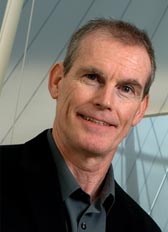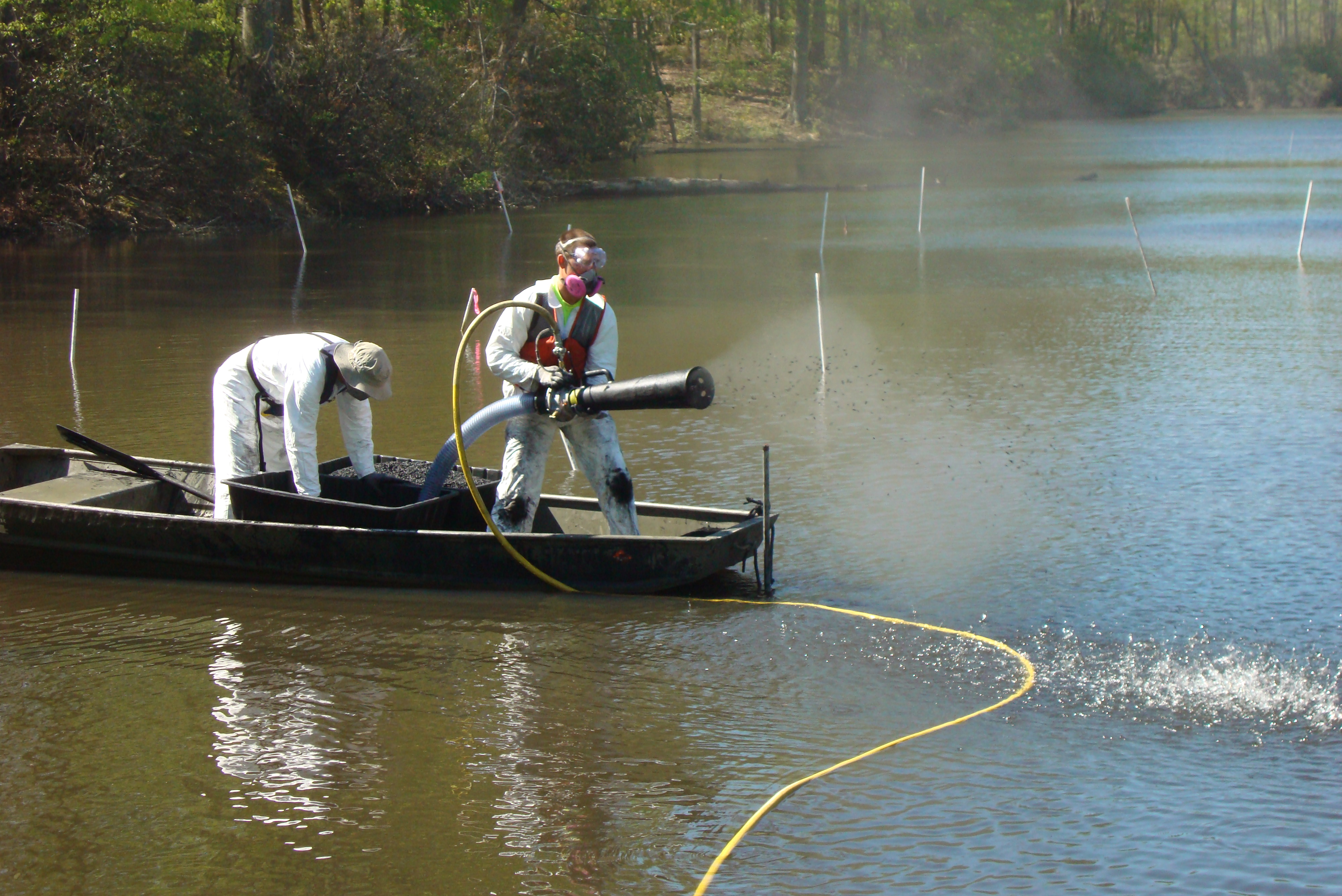Dr. Kevin Sowers begins on innovative technology
Field testing begins on innovative technology to clean PCB-contaminated sediments


Dr. Kevin Sowers, professor at the Institute of Marine and Environmental Technology (IMET) in Baltimore, has started a pilot scale demonstration to test an innovative technology to clean up highly toxic PCBs (polychlorinated biphenyls) from the environment. The technology, which employs naturally occurring PCB-degrading microorganisms, has the potential to be an environmentally sustainable and cost-effective alternative to conventional remediation technologies to treat PCB-impacted sediments.
“If we are willing to wait centuries or decades, PCBs will go away naturally,” said Dr. Sowers. “In the lab we found we could get 80% degradation in as few as 90 days.” The commercial production of PCBs started in 1929 but their use has been banned or restricted in many countries since the 1970s because of risks to human health and the environment. They are known endocrine disrupters, neurotoxins and carcinogens. As they leach out of sediments and into the water, they can make their way up the food chain, from insects to fish to people.
PCBs naturally biodegrade, but it can take centuries, and contaminated sediments continually leach PCBs into waterways. Sowers and his colleagues have identified which microrganisms naturally degrade PCBs in sediments and discovered a way to increase their numbers and effectively deliver them to sediments in waterways to speed up the process.
“We see it as another tool that is a sustainable and a less expensive ‘green’ approach,” Sowers said. “It’s not going to replace the other remediation methods, but it’s a good complement.”
The conventional technologies for remediation of PCB-contaminated sediments are dredging and transfer to landfills or capping with clean sediments. This approach is cost-prohibitive for large areas of contamination in rivers, lakes and coastal sediments, and disruptive to environmentally sensitive areas, such as wetlands. The new ”green” remediation system developed by Dr. Sowers and his colleagues enhances natural microbial activity in sediments and provides a more cost-effective and environmentally sustainable means of treating persistent organic pollutants such as PCBs.
The team is testing the process for the first time outside of the lab in a watershed drainage creek on the Quantico Marine Base in Virginia this summer. The project, funded by the Department of Defense-Environmental Security Technology Certification Program, is the culmination of more than 20 years of laboratory research to identify microorganisms that dechlorinate PCBs in the natural environment by Drs. Kevin Sowers at IMET and the Department of Marine Biotechnology at UMBC; Harold May at the Medical University of South Carolina; and Upal Ghosh in the UMBC Department of Chemical, Biochemical and Environmental Engineering.
PCBs are made-made materials made by adding chorine atoms to molecules to make them more stable and heat resistant. The microorganisms identified by Sowers and his team naturally remove those extra atoms so PCBs break down into harmless molecules.
“We found that there are anaerobes [micoroorganisms that can live without oxygen] that can remove chlorine,” said Sowers. “They literally breathe PCBs.”
The PCB-degrading microorganisms are sprayed onto pellets made of sand and clay that contain activated carbon particles, the same kind of carbon you find in your kitchen water filter. The pellets, developed by a startup called Sediment Solutions, sink to the bottom of the waterways and fall apart in the contaminated sediment, where bottom dwelling organisms like worms work the microorganisms deep into the mud.
“Right now in the field there is nothing like this, so if it works there could be a tremendous market,” said Dr. Russell Hill, Director of the Institute of Marine and Environmental Technology. “This is a great example of how the fundamental research at IMET can lead to practical solutions and provide economic benefits. Given Kevin’s outstanding research and his persistence, I’m confident that his technology will succeed in the real world as well as the laboratory”
Posted: July 16, 2015, 11:30 AM